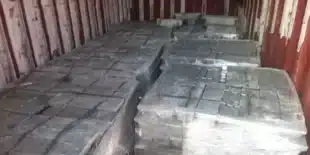The U.S. ceasefire proposal presented to Lebanese Speaker Nabih Berri includes 13 points, with the most contentious being a clause granting both sides the “right to self-defense.” Lebanese officials fear this could translate into the “freedom of movement” that Israel has been seeking but Lebanon strongly opposes, according to diplomatic sources cited by *Asharq al-Awsat*.
The proposal also calls for the creation of a new committee to oversee the implementation of U.N. Security Council Resolution 1701, which ended the 2006 conflict between Israel and Hezbollah but has seen frequent violations by both sides. Lebanon has raised objections to this proposed committee, particularly to the idea of it being chaired by the U.S.
Instead, Lebanese negotiators have suggested expanding the current Tripartite Committee—which includes Lebanon, Israel, and UNIFIL peacekeepers—to include representatives from the U.S. and France. Speaker Berri opposed the inclusion of Britain and Germany in the proposed supervisory body.
The Tripartite Committee has traditionally held monthly meetings in Naqoura to address border violations. Lebanon is expected to respond soon to the U.S. proposal with a written letter outlining its observations.
Berri clarified to *Asharq al-Awsat* that the U.S. proposal does not grant freedom of movement to the Israeli army within Lebanon nor does it call for the deployment of NATO or other foreign forces in Lebanese territory. However, he described a specific clause—regarding the formation of a Western-led oversight committee for Resolution 1701—as unacceptable to Lebanon. Discussions are ongoing to find an alternative mechanism for implementation.
Despite the challenges, Berri maintained that the discussions were progressing in a positive direction, emphasizing that what matters most is the outcome. Addressing the recent Israeli bombings of areas such as Tebnin and the southern suburbs of Beirut, including Ghobeiri, Shiyyah, and Burj al-Barajneh—areas traditionally supportive of him—Berri dismissed Israeli Prime Minister Benjamin Netanyahu’s strategy of using heavy attacks to extract concessions, saying it would not work with Lebanon.
According to a Lebanese official who spoke to AFP, the U.S. proposal spans five pages and outlines 13 points. If an agreement is reached, the United States and France would issue a joint statement announcing a 60-day truce. During this period, Lebanon would redeploy its troops along the southern border with Israel. The official added that Speaker Berri requested three days to review the proposal, while Israel has not yet provided a response.
Israeli officials have recently vowed to continue military operations against Hezbollah, and the U.S. State Department has refrained from commenting on the ongoing private negotiations. However, a spokesperson reiterated Washington’s commitment to finding a diplomatic resolution that ensures lasting calm and safety for residents in both Lebanon and Israel.
Another Lebanese official, speaking anonymously, confirmed that a truce proposal is under consideration and expressed optimism about the ongoing talks. He explained that the current proposal emerged from the recent meeting between Berri and U.S. mediator Amos Hochstein, where they discussed a roadmap for a ceasefire based on Resolution 1701. The two last met in October.
Resolution 1701, which ended the 2006 war between Hezbollah and Israel, mandates that only Lebanese troops and U.N. peacekeepers can operate in southern Lebanon, while also requiring Israel to withdraw its forces from Lebanese territory.
The second official warned that Lebanon would reject any agreement allowing Israel to continue military operations against Hezbollah inside Lebanon, as has been suggested in some media reports. He questioned the purpose of a ceasefire and the implementation of Resolution 1701 if Israel retains the ability to carry out attacks within Lebanese borders.


